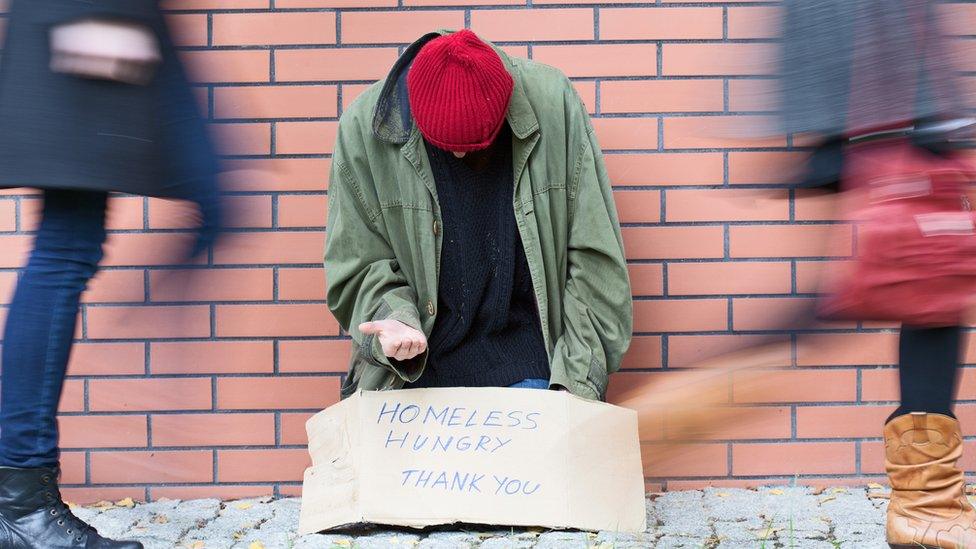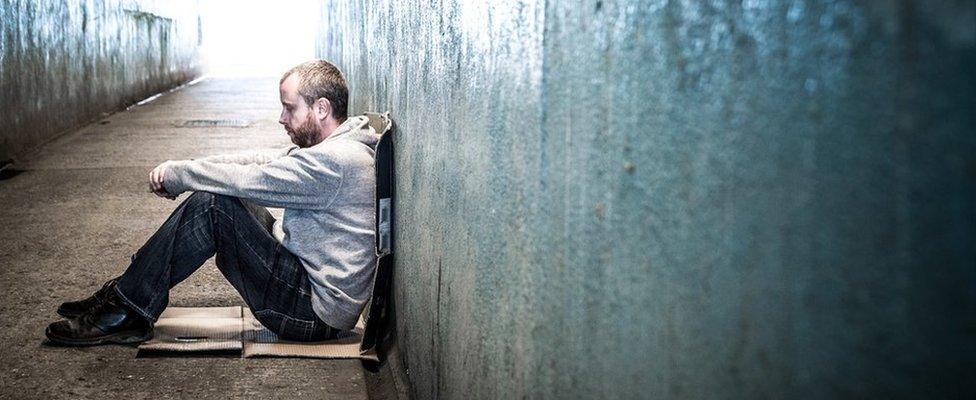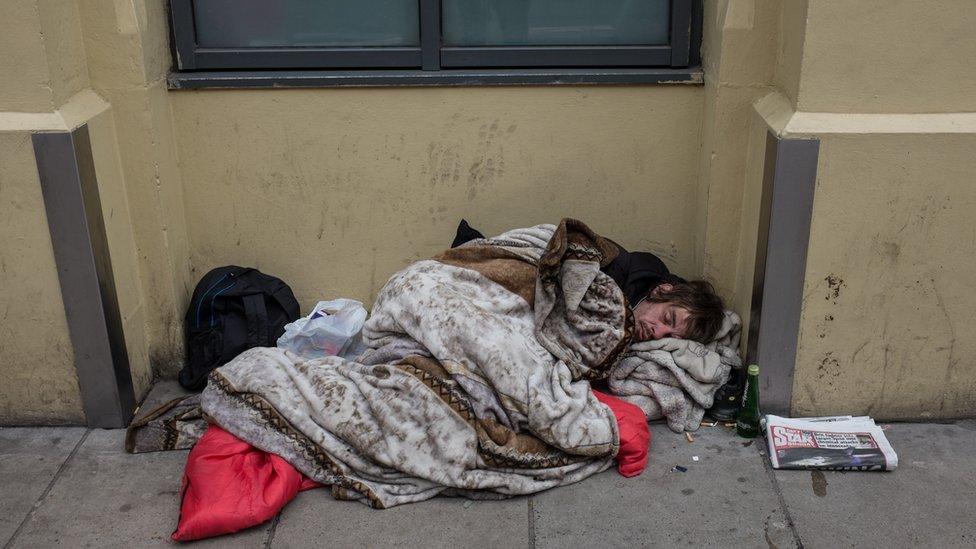Glasgow's 'alternative giving' scheme for beggars launches
- Published

Charities will be able to apply for funds on behalf of homeless people
An "alternative giving" scheme to help people involved in street begging is being launched in Glasgow.
Street Change Glasgow allows the public to make donations at contactless giving points in the city centre or online.
The money will help pay for items such as clothes to attend a job interview, public transport tickets and equipment to help people into work.
Charities including The Simon Community, external will apply to the council-run fund on the person's behalf.
The initiative also involves inviting Glasgow businesses and organisations to become "ambassadors" - providing financial support or work experience for suitable candidates.
Initially, three contactless payment points will be available inside Glasgow Central station, with one each in the city's Garage and Cathouse nightclubs.
Street Change Glasgow is modelled on the Big Change, external scheme which has been operating in Manchester for four years.
It will operate in tandem with existing services in the city such as the Housing First scheme and homelessness services.
There will also be a tie-in with Glasgow's digital inclusion officer, who currently tours the streets with a tablet computer, checking that people are claiming the benefits they are entitled to.

Should we give money to street beggars?

Big Change, the group behind the Manchester scheme on which the Glasgow initiative is based, believe it is a more effective way to help homeless people.
It says while giving money to people begging on the street seems supportive, it doesn't help individuals get away from sleeping rough.
It also fails to address the complicated range of reasons which made them homeless.
The scheme's mission statement says: "By working in partnership with charities and organisations providing frontline services for people facing homelessness, the Big Change Fund enables individuals to make lasting positive change.
"The organisations stay in touch with the individuals who receive money from the fund to provide long-term support."
- Published30 August 2018
